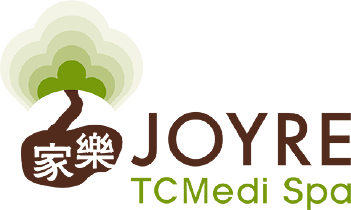
Besides protecting yourself by washing hands frequently, and wearing of masks when going out to buy necessities, we also need to take care of our health by maintaining a healthy immune system.
What could mess up your immune system?
Anxiety & Stress
Stress plays a very huge factor in immunity. It is especially important to relax and maintain a healthy emotional balance to maintaining your immune system. The stress hormone corticosteroid can suppress the effectiveness of the immune system (for example: lower the number of lymphocytes).
Lack of Sleep
Sleep is important to support healthy brain function and maintaining your physical health. Your body only releases cytokines during sleep, a certain type of small proteins that help the immune system. Without enough sleep, your body can’t make as many infection-fighting cells and antibodies that help defend against illness.
Lack of Exercise
Exercise is an essential component of a healthy immune system. It can relieve stress, as they release endorphins giving a deeply relaxing effect on your body. It also helps to ensure good “qi” flow, and blood circulation throughout the body. This in turn helps your immune cells to perform their jobs more effectively.
Poor nutrition
A healthy diet is very important for your body to make the white blood cells you need to fight off infections. A well-balanced diet means having a different variety of fresh fruits, vegetables, fish, eggs, meat and other protein, and plenty of fluids. This should give you sufficient nutrients and essential vitamins that your body needs. It is worth mentioning that if there is diarrhea or constipation, it should be treated in time to let the body restore itself.
Change your unhealthy, bad habits
Follow the natural laws, it can never be wrong. Habits such as irregular eating, overeating, snacking and eating of fast foods, reduced exercise time, excessive alcohol drinking, long-term lack of sleep, frequently sleeping late at night violate the natural law. All these can cause your immune system to lose balance. Start with a simple daily plan or schedule so that it is easier for you to follow through them.
What does TCM have to recommend?
Besides changing the above unhealthy habits, we can also strengthen our internal organs to help maintain immunity. From the point of view of traditional Chinese medicine, the organs related to immunity are the lungs, spleen and kidney.
Lungs
The lung here also refers to the respiratory system, as well as the nose, throat, lungs and skin. The lung is the body’s first line of defense for blocking foreign particles from entering the body. The epithelial linings of the lungs also contain specialized white blood cells called macrophages which are able to engulf and destroy foreign particles in the lungs. If the lungs are weak, allergic rhinitis, cough, and shortness of breath are likely to occur.
Spleen & Stomach
Chinese medicine refers to the spleen as the “acquired foundation of life”, the source of blood and qi (vital energy) production. Our gut is also known to be our second brain made up of millions of neurons work together to absorb nutrients, and propel waste in the digestive system. If the spleen and stomach are weak, it is easy to have yellow complexion, poor appetite, constipation, diarrhea and other symptoms.
Kidney
Chinese medicine refers to the kidney as the innate root. The kidney stores our residual energy for our fight and flight responses. It is an important source of driving force for vitality activities. If kidney qi is deficient, it is easy to have dizziness, dizziness, waist soreness, tinnitus, sexual function decline and other symptoms.
How can you support your lung, spleen and kidney to maintain healthy immunity?
1. Moderate aerobic exercise for lung health
Aerobic exercise raises your heart rate and makes you breathe harder, which ultimately can help improve lung capacity. Activities like walking, running or jumping rope give your heart and lungs the kind of workout they need to function efficiently. You can do exercises indoor as well.
2. Adequate sleep
Adequate sleep allows the body to maintain sufficient operating energy. It is recommended not to sleep more than 12 o’clock at night and should have at least 6 hours of regular sleep. Staying up late will disturb the circadian clock and affect immunity.
3. Food for lung health and immunity
Garlic, onion, green onion, leek, ginger, and other spicy substances can enhance the function of the lungs and spleen. Take note not to take them in excess or it might upset your stomach as well.
White radishes have the effect of removing lung fire and reducing phlegm. They are very suitable for people who have a cough and yellow phlegm. And it also has interferon inducing agent, which helps to improve immunity.
Lotus root has traditionally been prescribed for lung-related ailments, such as tuberculosis, asthma, and coughing. It is said to dissolve and eliminate excess mucous, easing congestion in the lungs over time.
Chinese yam not only strengthens the spleen and kidneys, but it also has nourishing effects on the lungs. It can assist in the treatment of lung energy deficiency, as well as for reducing phlegm and cough.
4. Acupressure Massage
We can also improve our immunity by massaging these acupuncture points.
Rubbing on the spots in red can stimulate these commonly known acupressure points. You should feel a sensation of soreness, bloatedness or needle-like pain if you are pressing on the right point. You can do this at your own comfortable pace daily for 3-5mins or more. They can help in balancing the flow of energy (qi) in the body as well as to maintaining a healthy immune system. You can read up more on TCM tuina massage here.
